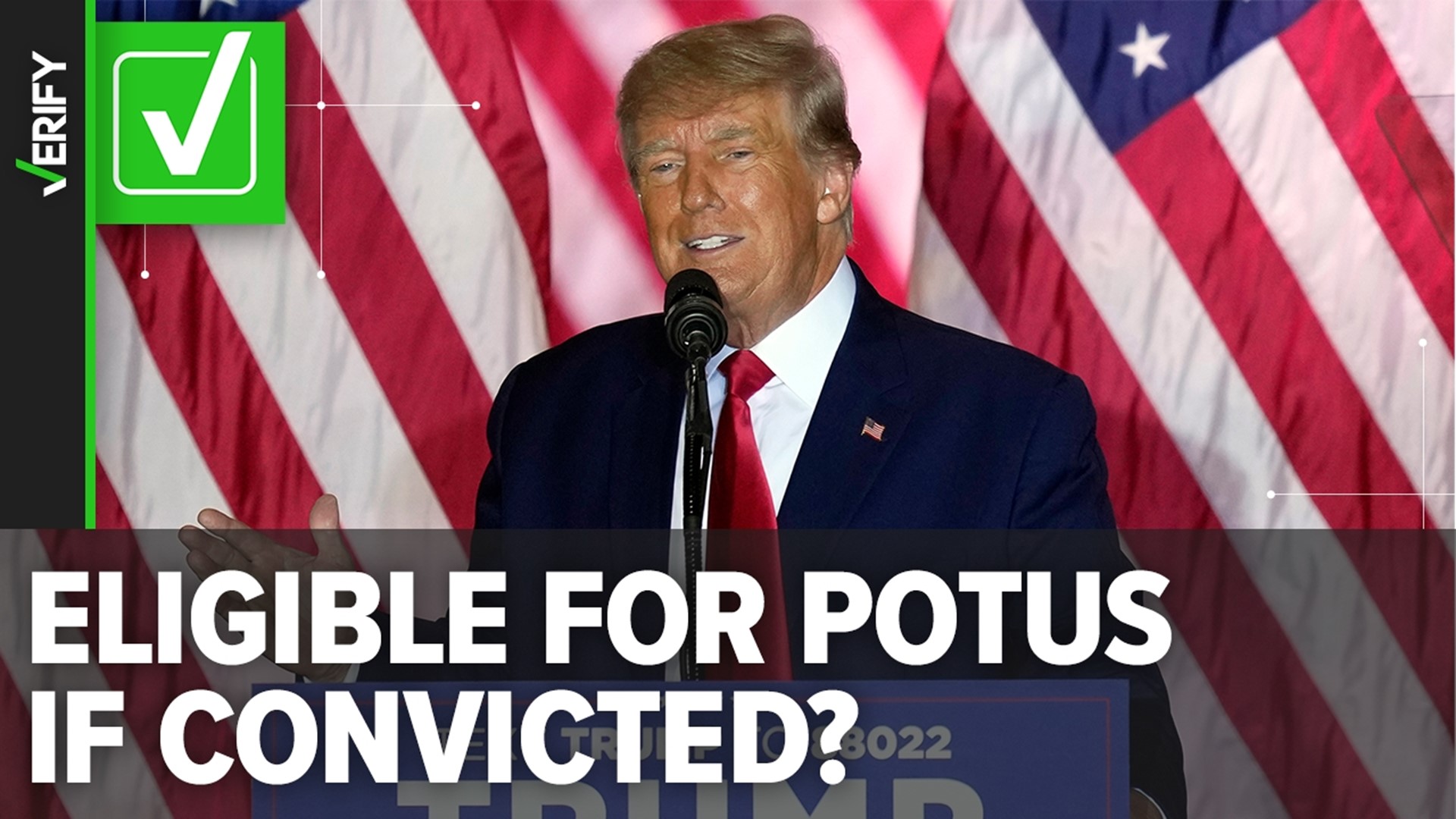Story update May 10, 2023: On May 9, a jury found Donald Trump liable in a civil case brought forward by E. Jean Carroll. This story has been updated with the latest development.
A jury found Donald Trump liable Tuesday, May 9, for sexually abusing advice columnist E. Jean Carroll in 1996, awarding her $5 million in a judgment.
Trump is also facing criminal charges in New York involving alleged hush money payments to adult film actress Stormy Daniels, who claims she had an affair with Trump.
We VERIFY if he is still eligible to run for or serve as president after being indicted in a criminal case or found guilty in a civil case.
THE QUESTION
Can you be elected president if you’ve been indicted or found guilty in a criminal or civil case?
THE SOURCES
- The U.S. Constitution
- U.S. Term Limits, Inc. v. Thornton Supreme Court ruling
- National Archives
- Doron M. Kalir, clinical professor of law at Cleveland-Marshall College of Law
THE ANSWER
Yes, you can run for and serve as president if you’ve been indicted or found guilty in a criminal or civil case.
WHAT WE FOUND
A person can run for or serve as president if they meet the qualifications outlined in the Constitution.
Article Two of the Constitution lists only three qualifications for the presidency:
- The candidate must be at least 35 years of age
- The candidate must be a natural born citizen
- The candidate must have lived in the United States for at least 14 years.
There is no mention of criminal charges or civil liability of any kind as disqualifying someone from running for or serving as president in the Constitution.
Doron M. Kalir, a clinical professor of law at Cleveland-Marshall College of Law, confirmed to VERIFY that anyone charged or convicted of a crime could still sit in the Oval Office. A constitutional omission is the same thing as legal permission, he said. That means because the Constitution doesn’t say anything about a crime or conviction as part of the eligibility, it’s allowable.
He said at the time of America’s founding, the drafters of the Constitution likely didn’t consider an indictment or conviction as a factor for eligibility.
“Accordingly, they left it to the voters to decide whether such a person deserves to lead them. That determination — to leave it to the voters — was left intact for over two centuries. I doubt it will be disturbed now,” Kalir told VERIFY.
The Supreme Court has also upheld the constitutional eligibility requirements and prevented states from excluding anyone convicted of any charge from running for federal office, including the presidency.
The only way to change the requirements for the presidency would be to amend the Constitution. According to the National Archives, Congress would have to pass the amendment by two-thirds majority vote in both the House of Representatives and the Senate. Or, a constitutional convention would have to be called by two-thirds of state legislatures. The last time a convention was called was in 1787.
While rare, there have been times a convicted felon has run for president.
Joseph Maldonado, also known as Joe Exotic of “Tiger King” fame, announced his bid for a 2024 presidential run. He is currently serving a 21-year prison sentence.
In 1988, Lyndon LaRouche was convicted on mail fraud and conspiracy charges and he still ran for president multiple times until 2004.
In 1920, Eugene Debs ran for president after being convicted of espionage. He ran on the socialist ticket from a federal prison in Alabama.

